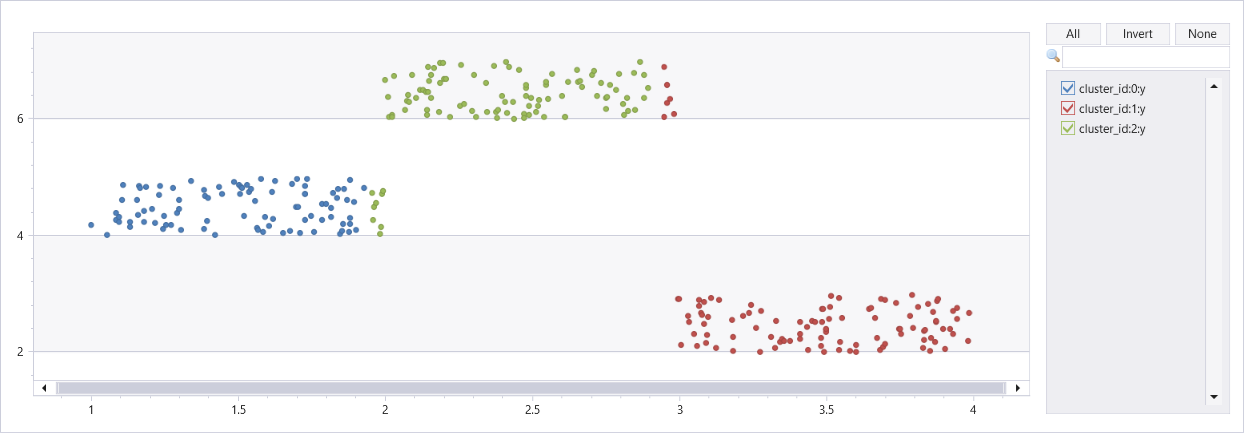kmeans_fl()
The function kmeans_fl() is a UDF (user-defined function) that clusterizes a dataset using the k-means algorithm.
Prerequisites
- The Python plugin must be enabled on the cluster. This is required for the inline Python used in the function.
- The Python plugin must be enabled on the database. This is required for the inline Python used in the function.
Syntax
T | invoke kmeans_fl(k, features, cluster_col)
Learn more about syntax conventions.
Parameters
| Name | Type | Required | Description |
|---|---|---|---|
| k | int |
✔️ | The number of clusters. |
| features | dynamic |
✔️ | An array containing the names of the features columns to use for clustering. |
| cluster_col | string |
✔️ | The name of the column to store the output cluster ID for each record. |
Function definition
You can define the function by either embedding its code as a query-defined function, or creating it as a stored function in your database, as follows:
Define the function using the following let statement. No permissions are required.
Important
A let statement can't run on its own. It must be followed by a tabular expression statement. To run a working example of kmeans_fl(), see example.
let kmeans_fl=(tbl:(*), k:int, features:dynamic, cluster_col:string)
{
let kwargs = bag_pack('k', k, 'features', features, 'cluster_col', cluster_col);
let code = ```if 1:
from sklearn.cluster import KMeans
k = kargs["k"]
features = kargs["features"]
cluster_col = kargs["cluster_col"]
df1 = df[features]
km = KMeans(n_clusters=k, random_state=0)
km.fit(df1)
result = df
result[cluster_col] = km.labels_
```;
tbl
| evaluate python(typeof(*), code, kwargs)
};
// Write your query to use the function here.
Example
The following example uses the invoke operator to run the function.
Clustering of artificial dataset with three clusters
To use a query-defined function, invoke it after the embedded function definition.
let kmeans_fl=(tbl:(*), k:int, features:dynamic, cluster_col:string)
{
let kwargs = bag_pack('k', k, 'features', features, 'cluster_col', cluster_col);
let code = ```if 1:
from sklearn.cluster import KMeans
k = kargs["k"]
features = kargs["features"]
cluster_col = kargs["cluster_col"]
df1 = df[features]
km = KMeans(n_clusters=k, random_state=0)
km.fit(df1)
result = df
result[cluster_col] = km.labels_
```;
tbl
| evaluate python(typeof(*), code, kwargs)
};
union
(range x from 1 to 100 step 1 | extend x=rand()+3, y=rand()+2),
(range x from 101 to 200 step 1 | extend x=rand()+1, y=rand()+4),
(range x from 201 to 300 step 1 | extend x=rand()+2, y=rand()+6)
| extend cluster_id=int(null)
| invoke kmeans_fl(3, bag_pack("x", "y"), "cluster_id")
| render scatterchart with(series=cluster_id)

This feature isn't supported.
Feedback
Coming soon: Throughout 2024 we will be phasing out GitHub Issues as the feedback mechanism for content and replacing it with a new feedback system. For more information see: https://aka.ms/ContentUserFeedback.
Submit and view feedback for